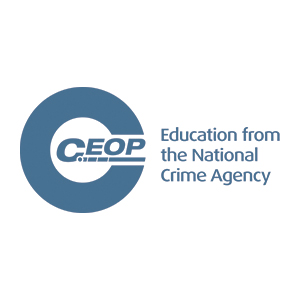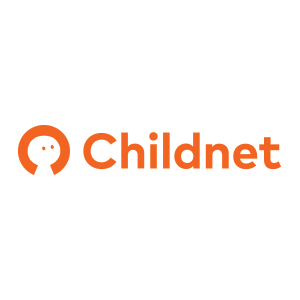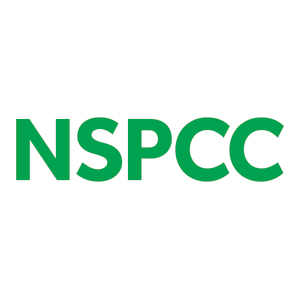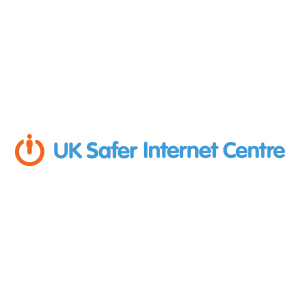Safeguarding
Parents, carers and staff all have the safety and wellbeing of our children at the centre of the decisions they make, both in and out of School. Keeping children safe is everyone’s responsibility. Members of the public, as well as staff in helping agencies, can play a vital role in helping to protect children from abuse or neglect.
Whilst the child’s welfare is always the most important consideration, there is also a duty on professionals to work in partnership with parents, to provide support where necessary and to ensure that children remain with their families wherever possible.
If any member of the public thinks a child may be at risk of abuse or neglect, they should contact the local Children’s Services (formerly known as Social Services) or the NSPCC National Helpline.
For children who live in Redcar & Cleveland
- The Redcar MACH – 01642 130700
- Out of Hours Emergency Duty Team – Tel: 01642 524 552
For children who live in Middlesbrough
- The Middlesbrough MACH – 01642 726004
- Out of Hours Emergency Duty Team – 01642 524552
NSPCC National Helpline
Tel: (0808) 8005000
If a member of the public considers that there is an emergency situation, they should dial 999 for the Police.
Staff at Ormesby Primary School receive annual Child Protection training.
The School maintains a Single Central Record, which records all the adults who work with children at our school. We also only work with contractors (for example builders) who can meet our requirements regarding safeguarding of pupils.
- Mrs Blackburn is the Designated Safeguarding Lead for Child Protection;
- Mrs Loughran, Mrs Taylor, Ms Tokarski, Mr Drage and Miss Cameron are all Deputy Designated Safeguarding Leads.
- Mrs Barnett is a trained Designated Safeguarding Lead and supports all schools within the Ironstone Academy Trust
- Mrs Teresa Dean is the Designated Governor Safeguarding Lead; and can be contacted through school.
Further Information
Keeping your Child Safe Online
It is important to have regular conversations about staying safe online and to encourage children to speak to you if they come across something worrying online.
Talk to your child about the importance of creating a safe online environment, including keeping any log-in details and passwords safe.
These resources will support you to talk to your child about a range of online safety issues, set up home filtering in a child-friendly way and set up age-appropriate parental controls on digital devices:

Thinkuknow by the National Crime Agency – Child Exploitation and Online Protection command (NCA-CEOP) – resources for parents and carers and children of all ages to help keep children safe online.

Childnet has developed guidance for parents and carers to begin a conversation about online safety, as well as guidance on keeping under-fives safe online.

National Society for the Prevention of Cruelty to Children (NSPCC) – guidance for parents and carers to help keep children safe online.

UK Safer Internet Centre – tips and advice for parents and carers to keep children safe
online – you can also report any harmful content found online through the UK Safer Internet Centre

Inclusive Digital Safety Hub and Online Safety Hub, created by South West Grid for Learning in partnership with Internet Matters – support and tailored advice for young people with
additional learning needs and their parents or carers

Parents’ Guide to Age Ratings explains how the British Board of Film Classification rates
content, and gives parents advice on choosing online content well
CHILD SEXUAL ABUSE
If you are concerned call 999 or report it to the NCA-CEOP.
If your child has been a victim of child sexual abuse – online or offline – and you believe they are in immediate danger, call 999 and ask for the police. The police will continue to respond to emergency calls.
If you are concerned that your child has been a victim of online sexual abuse or you are worried about the way someone has been communicating with your child online, you can report it to NCA-CEOP.
These resources provide information and support for parents and carers on what to do if you’re worried about child sexual abuse:
you can contact the NSPCC helpline (0808 800 5000) for support and advice if you have concerns about your own or another child’s safety. The Together, we can tackle child abuse campaign also provides information on the signs of child abuse and neglect.
Thinkuknow by NCA-CEOP has developed activities to support your child’s safe use of the internet the Lucy Faithfull Foundation’s Parents Protect website has advice on how to help protect children from child sexual abuse including a Harmful Sexual Behaviour Prevention Toolkit if you see sexual images or videos of someone under 18 online, report it anonymously to the Internet Watch Foundation who can work to remove them from the web and help to identify victims and survivors you can contact Stop It Now! for information and advice if you have concerns about someone’s behaviour, including children who may be displaying concerning sexual behaviour you can contact The Marie Collins Foundation help@mariecollinsfoundation.org.uk for support, including advice and individual counselling, for your child if they have been subjected to online sexual abuse – support is also offered to parents and carers.
CRIMINAL EXPLOITATION AND COUNTY LINES, VIOLENCE AND GANGS
Our page of advice to parents and carers on keeping children safe from abuse and harm has
information on this.
RADICALISING CONTENT
If you are concerned that any family member, friend or loved one is being radicalised, you can call the police or 101 to get advice or make a Prevent referral, so that they can get safeguarding support.
Support is tailored to the individual and works in a similar way to safeguarding processes designed to protect people from gangs, drug abuse, and physical and sexual exploitation.
Receiving support through Prevent is voluntary, confidential and not a form of criminal sanction.
SEXTING (Youth Produced Sexual Imagery)
If you are worried about your child sending nude images or videos (sometimes referred to as ‘youth-produced sexual imagery’ or sexting), NSPCC provides advice to help you understand the risks and support your child.
If your child has shared nude images, Thinkuknow by NCA-CEOP provides advice on talking to your child and where to get help.
So You Got Naked Online created by South West Grid for Learning, has advice for young people and parents affected by sexting, also available in a SEND (Special Educational Need and Disability) version.
CYBERBULLYING
If you are concerned about cyberbullying, you can find government advice and information about how you can protect your child and tackle it if it happens.
AGE-INAPPROPRIATE CONTENT AND PARENTAL CONTROLS
If you have downloaded new apps or bought new technology to help stay connected at this time, remember to review and adjust privacy and safety settings if you or your child is signing up to a new online service.
- Internet Matters has step-by-step guides on how to set up parental controls so that you can control what content your child can access online
- the UK Safer Internet Centre has guidance on how to switch on family-friendly filters to prevent age-inappropriate content being accessed on devices in your home
- the NSPCC has more information for parents or carers with concerns about their child seeking inappropriate or explicit content online.
APPS TO HELP CHILDREN STAY SAFE ONLINE
The BBC has a website and app called Own It. The website helps children navigate their online lives, and the free smartphone app comes with a special keyboard which can intervene with help and support in the moments that children need it the most. It can be downloaded for free in the Google Play Store and Apple App Store.
SafeToNet is an app for parents to help them protect their children from online risks like cyberbullying and sexting, while respecting their child’s rights to privacy. The SafeToNet
Foundation is providing UK families with free-for-life access to SafeToNet during the coronavirus (COVID-19) outbreak.
MENTAL HEALTH
If you are worried about your child’s mental health, the government has published guidance for parents and carers on supporting children and young people’s mental health and wellbeing during the coronavirus outbreak.
If you are worried that someone you know is suicidal, including your child, Samaritans provides advice on how you can support others.
SUPPORT FOR CHILDREN
If your child is worried or needs support, they can get advice and support from Childline (0800 1111) or download the ‘For Me’ app.
If you need help to support your child’s mental wellbeing, this list of online education resources for home education includes mental wellbeing resources on how to support the wellbeing of children and young people.
Prevent Duty
We recognise that we must have “due regard to the need to prevent people
from being drawn into terrorism”. This duty is known as the Prevent duty and enables us to
protect children from the risk of radicalisation.
“In order for schools and childcare providers to fulfil the Prevent duty, it is essential that
staff are able to identify children who may be vulnerable to radicalisation, and know what to
do when they are identified. Protecting children from the risk of radicalisation should be
seen as part of schools’ and childcare providers’ wider safeguarding duties, and is similar in
nature to protecting children from other harms (e.g. drugs, gangs, neglect, sexual
exploitation), whether these come from within their family or are the product of outside
influences. Schools and childcare providers can also build pupils’ resilience to radicalisation
by promoting fundamental British values and enabling them to challenge extremist views. It
is important to emphasise that the Prevent duty is not intended to stop pupils debating
controversial issues. On the contrary, schools should provide a safe space in which children,
young people and staff can understand the risks associated with terrorism and develop the
knowledge and skills to be able to challenge extremist arguments.
(Prevent Duty, June 2015)
As part of our wider safeguarding duties, we recognise that it is essential that we are able to
identify children who may be vulnerable to radicalisation, and know what to do when they
are identified. All relevant staff undertake online CPD provided by the Home Office on
identification of children vulnerable to radicalisation and the PREVENT strategy every three
years. Updates are provided through team meetings sharing relevant government updates
and case studies.
Staff are aware of potential indicators that children are vulnerable to radicalisation
regardless of age, gender, ethnicity etc.. As a result, they are alert to changes in children’s
behaviour which could indicate that they may be in need of help or protection. Children at
risk of radicalisation may display different signs or seek to hide their views. School staff use
their professional judgement in identifying children who might be at risk of radicalisation and
act proportionately. School staff report any concerns and, through discussion with the
safeguarding team, understand when it is appropriate to make a referral to the Channel
programme.
Safeguarding Support for Parents
Call the National Society for the Prevention of Cruelty to Children (NSPCC) helpline for support and advice if you have a concern for your own or another child’s safety on 0808 800 5000. If you feel that a child is in immediate danger, call the police on 999.
You can report concerns to the police on their non-emergency number, 101. You can also contact the social care team at the council to report a concern about a child or adult:
Redcar and Cleveland MACH – 01642130700
Middlesbrough MACH – 01642726004
Out of Hours Emergency Duty Team – 01642524552
Children and young people who have been victims of a crime may need support to cope and recover. You don’t have to report the crime to the police to get support. You can find free, local support teams across England and Wales on the Victim and Witness Information site
Staff Safeguarding CPD
The Hartlepool and Stockton on Tees Safeguarding Children Partnership website also contains a wealth of legislation, guidance and information to help develop your knowledge and understanding of safeguarding. This can be found at: https://www.hsscp.co.uk/ The National Online Safety website also contains school webinars to support staff with regularly occurring online issues such as online grooming, online safety and online wellbeing.
This can be found at: https://nationalonlinesafety.com/ The NSPCC website also contains lots of support and tips to help you keep children safe. From advice on children’s mental health to staying safe online, support for parents and what to do if you’re worried about a child. https://www.nspcc.org.uk
Working with other Agencies
Police
Under the Children Act 1989, the police service, working with other agencies such as local
authority children’s social care services, health services and education services, is responsible for making enquiries to safeguard and secure the welfare of any child within their area who is suffering (or is likely to suffer) significant harm.
The police are duty-bound to refer to the local authority those children in need whom they find in the course of their work.
Their role includes:
- the identification of children who might be at risk from abuse and neglect;
- the investigation of alleged offences against children;
- their work with other agencies, particularly the requirement to share information that is relevant to child protection issues; and
- the exercise of emergency powers to protect children.
Operation Encompass
Operation Encompass was set up to provide early reporting to schools etc., about any domestic abuse incidents that occur outside of school hours to which a young person attending our school has been exposed, and which might then have an impact on them attending school the following day. Information will only be shared with the school by the police where it is identified that a young person was present, witnessed or was involved in a domestic abuse incident.
For more information, visit the Operation Encompass website.
Social Care
Social Workers have a central role within the local authorities with a duty to promote, support and safeguard the wellbeing of all children in need in their area, and, insofar as is consistent with that duty, to promote the upbringing of children by their families by providing a range and level of services appropriate to children’s wellbeing needs.
The Local Authority has a duty to make enquiries under Section 47 of the Children Act 1989 if they “have reasonable cause to suspect that a child is suffering, or is likely to suffer, significant harm”. This investigation is carried out by a social worker.
School can discuss concerns with duty social workers in the Children’s Hub for further advice and support.
Local Authority Designated Officer(LADO)
If there are allegations against a member of staff, these must be reported immediately to the Headteacher. Where necessary, the LADO must be contacted within one working day in respect of all cases in which it is alleged that a person who works with children has:
- behaved in a way that has harmed, or may have harmed a child;
- possibly committed a criminal offence against or related to a child; or
- behaved towards a child or children in a way that indicates they may pose a risk of harm to children.
The LADO is responsible for:
- Providing advice, information and guidance to employers and voluntary organisations around allegations and concerns regarding paid and unpaid workers.
- Managing and overseeing individual cases from all partner agencies.
- Ensuring the child’s voice is heard and that they are safeguarded.
- Ensuring there is a consistent, fair and thorough process for all adults working with children and young people against whom an allegation is made.
- Monitoring the progress of cases to ensure they are dealt with as quickly as possible.
- Recommending a referral and chairing the strategy meeting in cases where the allegation requires investigation by police and/or social care.
NSPCC Types of Abuse
If you’re worried about a child, it can be hard to know what to do. We’ve got information and advice on different types of child abuse, how to spot the signs and what you can do to help keep children safe. Please click the link below




